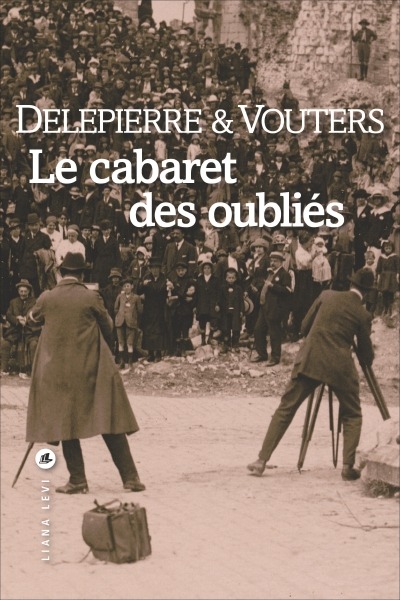
The Cabaret of the Forgotten
Le Cabaret des oubliés
The Great War. Private Alfred Berthier risks his life in the trenches. After a devastating shelling, the stretcher-bearers pull him from the carnage practically unscathed, but without his dogtags or uniform. Rechristened Adam by the nurses, he feigns amnesia to avoid returning to the front and to forget, not just the phantoms of war, but those as well encountered in 1906 at Courrières, the biggest mining disaster in Europe. He leaves the hospital a broken man. In Paris, he tries to rebuild the semblance of a life. A grey and silent life. Between the refugees’ newspaper and the Ministry of War Reparations, he wanders around the northern line train station or bohemian Montparnasse. During these years called “roaring,” years of national reconstruction, Alfred-Adam must put the past behind him. In order to be able to smile again, for the truth about Courrières, he has to go back to the north of France. The position of odd-job man in a small café presents itself. There, a tight-knit little community, as lovable as it is merry, helps him to confront his demons until, in a colourful finale, our hero gets the idea of reconverting the local cockfight ring into a lively tent show where all the forgotten, the social rejects of the Republic, will go on parade.
A portrait of the France of the 1920s, an homage to the cheeky humour and generosity of northerners, a novel about the rebirth of a man, Le Cabaret des oubliés is a funny nose-thumbing of the First World War.
Philippe Delepierre is a professor of literature in Villeneuve d’Ascq. Liana Levi has published three of his novels, Fred Hamster et Madame Lilas, awarded the RTL-Lire prize in 2004 (Italy, Piemme); Crissement sur le tableau noir in 2005; and Les Gadoues in 2007; as well as a vitriolic thriller about May ’68, Sous les pavés l’orage.
Bruno Vouters is assistant chief-editor of the daily newspaper La Voix du Nord.
About
“It’s a book you’re sorry to finish, that leaves you wanting to know more.” Le Monde
“An original look at that distinctive atmosphere of the post-war years.” Le pèlerin
“Le Cabaret des oubliés is a novel that combines dark realism with comic wit in the story of an endearing ex-poilu in revolt.” Télé Z
“This novel does justice to those whom official history has so far scarcely given due credit.” La Voix du Nord